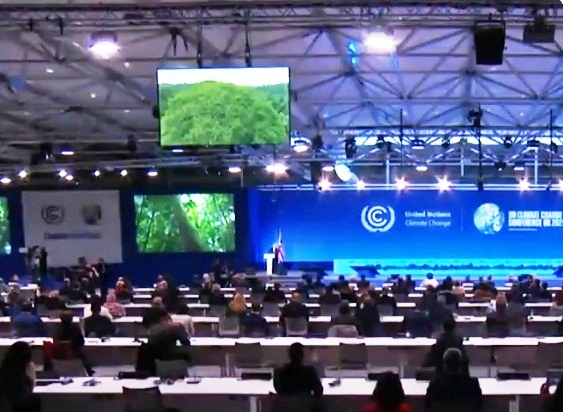Glasgow: A United Nations analysis of the latest national climate pledges indicates the ongoing UN talks in Glasgow made ‘some serious toddler steps’ toward cutting emissions but far from the giant leaps needed to limit global warming to internationally accepted goals.
United Nations Environment Programme Director Inger Andersen said Tuesday that the new analysis found that the commitments from the last week weren’t enough to trim future warming scenarios and reduced the “emissions gap” by a few tenths of a percentage point.
Pledges from countries to curb emissions would cut 8 billion metric tons out of the 55 billion metric tons that need to be eliminated to limit warming to 1.5 degrees Celsius (2.7 degrees Fahrenheit) since pre-industrial times. That’s the goal of the 2015 Paris climate accord.
“There’s some serious toddler steps,” Andersen said in an interview with The Associated Press a few minutes after the analysis was finished. “But they are not the leaps we need to see by any stretch of the imagination.”
Andersen acknowledged that none of the three main UN goals for the two-week climate talks have been achieved so far. The goals are cutting greenhouse gas emissions by about half by 2030, securing $100 billion a year in aid from rich countries to poor nations because of climate change, and having half of that money go for developing nations to adapt to global warming’s worst harms.
“No, we’re not done yet. We still have a couple of days,” Andersen said. “And so we’re certainly from our side, from the United Nations side, we’re going to try to hold everyone’s feet to the fire.”
——————
Glasgow: Denmark has come out on top, more or less, of a regular review tracking countries’ efforts to combat climate change.
Thanks to its ambitious targets for reducing greenhouse gas emissions, the Nordic country bumped Sweden off the top in the ranking published by Germanwatch and the New Climate Institute.
But Denmark’s performance was still only good enough for fourth place. The non-governmental organizations said none of the 64 countries reviewed met all conditions for a place on the winners’ podium.
Morocco, Chile and India were the top countries outside of Europe, taking places 8 to 10 respectively.
Germany, Europe’s biggest economy, was ranked 13th, while the United States came in 55th place, one ahead of Russia.
The US was weighed down by its heavy reliance on fossil fuels, high emissions and energy use per capita, the groups said, but gained six places since the last ranking was published for announcing more ambitious climate targets.
AP
